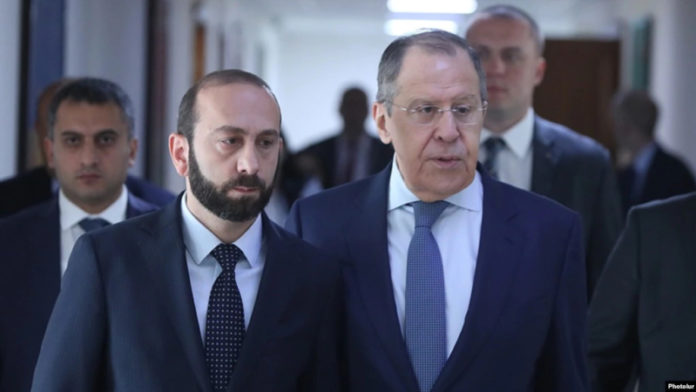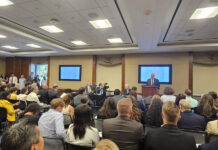YEREVAN (RFE/RL) — Armenia will control a road and a railway that will connect Azerbaijan with its Nakhichevan exclave through an Armenian region, Russian Foreign Minister Sergei Lavrov said during a visit to Yerevan on Thursday, June 9.
Lavrov revealed at the same time that the Armenian government has agreed to simplify border crossing procedures for Azerbaijani cargo and travelers that will use the planned transit routes.
Armenia and Azerbaijan are to reopen their border to commercial and passenger traffic under the terms of a Russian-brokered ceasefire that stopped their six-week war for Nagorno Karabakh in November 2020.
Azerbaijani President Ilham Aliyev has repeatedly claimed that the deal calls for a permanent land corridor for Nakhichevan passing through Armenia Syunik province that also borders Iran. Aliyev said in December that passage through the corridor must be exempt from Armenian border controls. Yerevan rejected his demands.
The disagreements effectively suspended the work of a Russian-Armenian-Azerbaijani commission dealing with practical modalities of the transport links.
The commission met in Moscow late last week for the first time in five months. The Russian government said its Armenian and Azerbaijani members “brought closer their positions on border issues, customs and other types of control.”








